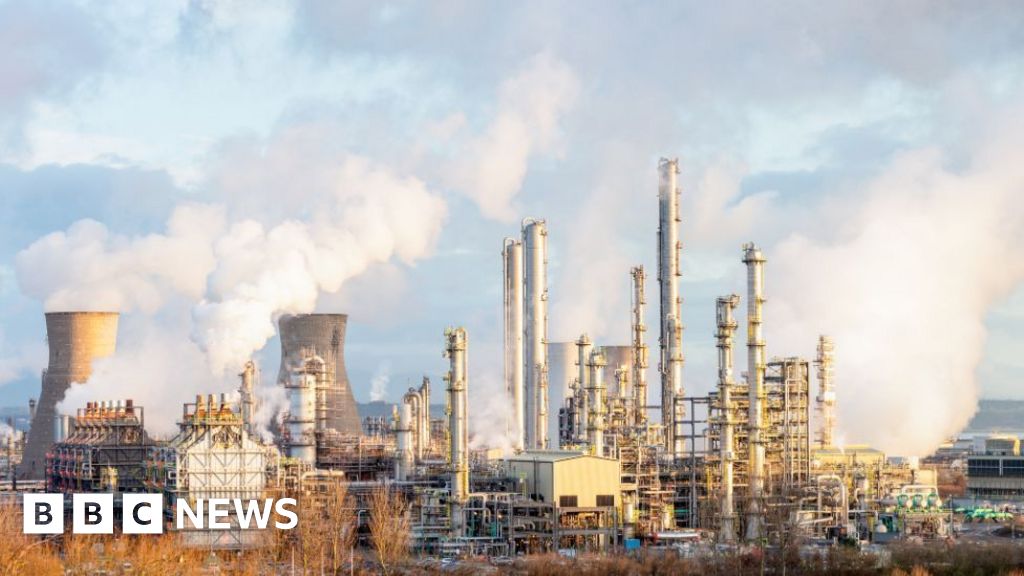Bussiness
Galloway chosen as preferred site of next national park
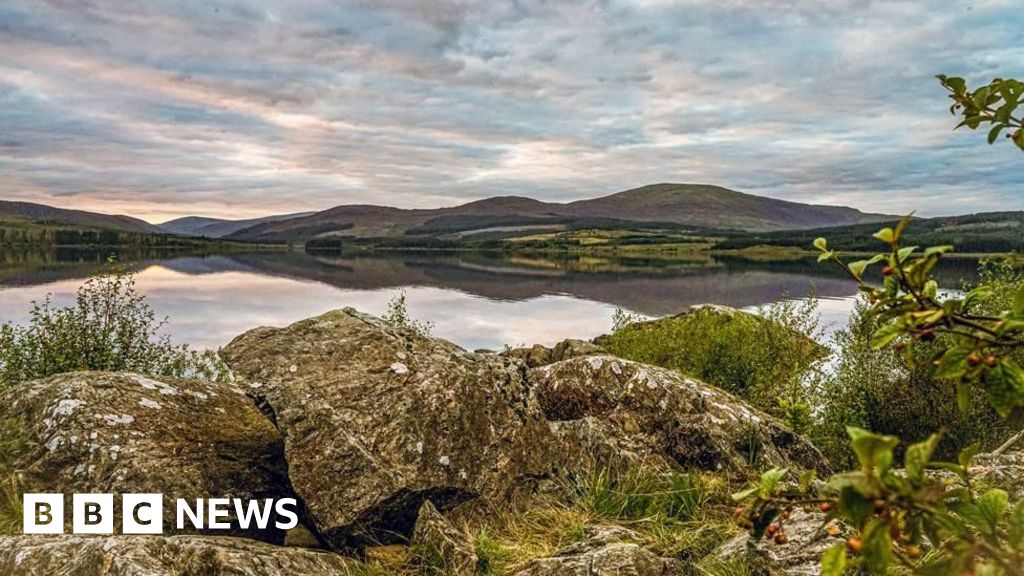
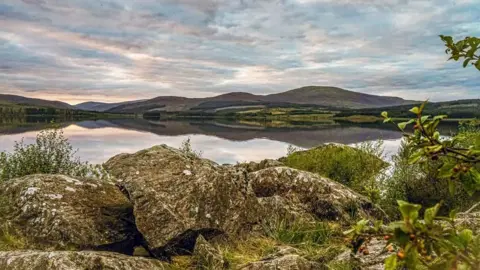 Getty Images
Getty ImagesGalloway in Scotland has been chosen as the preferred site for the next national park.
The region was selected from a five-strong shortlist following a months-long review of criteria. If given the official designation, it will be the first national park in the UK in about 15 years.
The bid was praised for having made a “strong case” while campaigners hailed the decision as “fantastic news.”
A further investigation will now be carried out into Galloway’s suitability to join the country’s two existing parks at the Cairngorms and Loch Lomond and the Trossachs.
There are 15 national parks in the UK, two of which are in Scotland.
The last to be established was the South Downs on the south east coast of England in 2010.
The Scottish government’s rural affairs secretary Mairi Gougeon unveiled the decision at Shambellie House, within the proposed new park.
She said: “The proposal is community led, has the backing of many local businesses and makes a strong case on the benefits that national park status will bring for people who live in the area, for the local economy and for the environment.”
She added that the bid had shown “unique and distinct character”, and that the park status would help in “tackling the nature and climate crisis”.
It has been more than 20 years since the last national park was created in Scotland, which led the SNP and the Scottish Greens to agree that “at least one” would be designated by the end of the current parliamentary session in 2026.
The Scottish Borders, Lochaber, Loch Awe and Tay Forest were the other regions in contention.
Ms Gougeon added that the competition had been “extremely tough.”
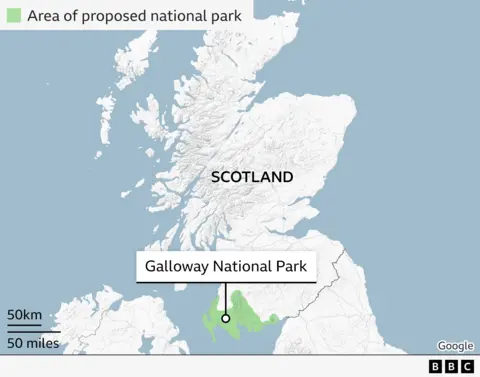
National park status means that the area will be set aside for preservation of the natural environment, ensuring that most of the landscapes and accompanying plants and animals are kept in their natural state.
The Galloway National Park Association (GNPA) have campaigned for a site in south-west Scotland for a number of years.
Rob Lucas, who chairs the group, said the park would bring “transformational economic and environmental benefits” to the region.
He added: “We look forward to contributing actively to the next important step in the process for putting a national park at the heart of a sustainable future for Galloway.”
Mr Lucas said that park status would help “put Galloway on the map” and would give local people pride in the area.
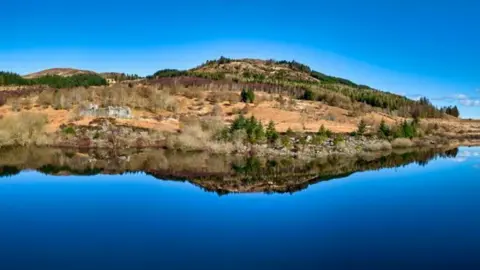 Getty Images
Getty ImagesA report will now be prepared by NatureScot for the Scottish Parliament to review in April 2025 before ministers decide whether to make a ‘designation order’ – if approved by Parliament this would lead to the official designation of the new site.
Chair professor Colin Galbraith said that NatureScot would “consult widely” with local people during their investigation.
The Scottish Greens co-leader Lorna Slater – who at the time was the Scottish government’s biodiversity minister – previously said Scotland’s two current national parks were among the country’s “greatest assets”.
Ms Slater said the Galloway proposal was a “particularly bold vision”.
She added: “This will have a transformative impact for local nature and communities, and will bring in a lot of vital investment, protections and opportunities.
“It will give local people, farmers and businesses the chance to build the park in their vision and serve as a beacon for a greener Scotland.”
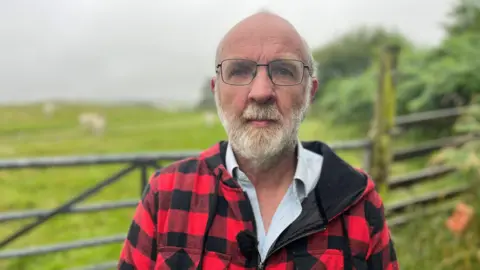
However not everyone has supported the creation of a new park.
The agricultural sector has raised concerns that it would lead to an “extra layer” of bureaucracy for those in the area.
In Galloway, the farming community have also questioned if the status could damage growth and tourism potential – a claim campaigners dismissed.
Dr John Locke, a livestock farmer in the area, told BBC Scotland News that national park status could impact the way farms are allowed to develop locally.
He said: “We need to have profitable farming in Dumfries and Galloway. We already have quite a lot of conditions and restrictions and targets from existing legislation and other bodies.”

This is a vision from a relatively small group of proponents who think a national park will be good for Galloway.
There’s been no real democratic test yet of whether it’s supported by the people who live and work in the area.
But there will be now as NatureScot launches its consultation.
Speak to businesses in a national park and they’ll tell you it can be quite a restrictive place to operate.
But it can bring benefits.
So the next few months will be an opportunity for those in Galloway to say whether they want this designation or not.
They won’t have the casting vote through; this will be a piece of nationally designated infrastructure.
It could boost local tourism and attract more people to live and work in Galloway but that – in turn – might put extra pressures on the road network.
Farmers see anything which makes their job more burdensome as offering the potential to push them over the edge.
And recent times have been tough.
Getting this right over the next 12 months will be a tricky balancing act for Scottish ministers.





